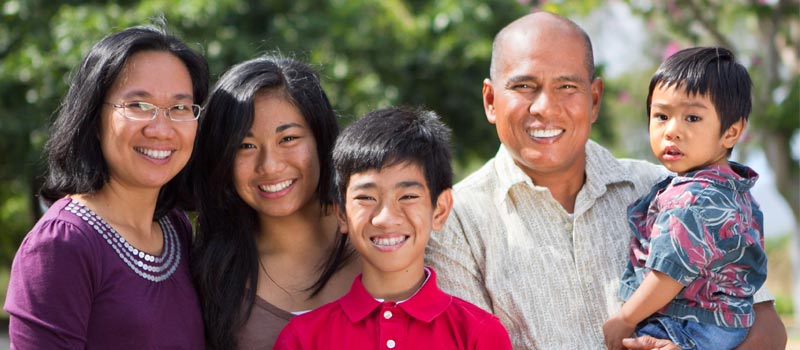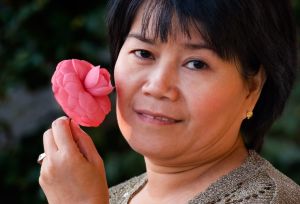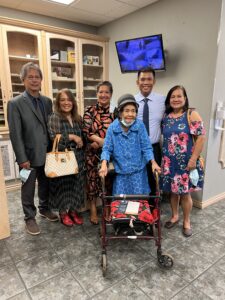Humanitarian Reinstatement

We are not currently taking on new Humanitarian Reinstatement cases.
When Your Petitioner Dies
What happens if your U.S. petitioner dies? This often happens, especially when you’re in a country with very long lines including the Philippines, Mexico, China, and India. If your petitioner passes away during the years before the interview, you might still be able to continue with your case. This can also happen if the ‘principal beneficiary’ dies and you are their spouse or child.
In 2009 a new law, Section 204(l) of the Immigration and Nationality Act, was passed which allows more applicants to preserve their case status. It applies in family and employment-based cases, refugee/asylum, and U and T visa cases.
First, let’s explain some terms – who’s who?
- Petitioner – the U.S. citizen or green card holder who files for the relative abroad;
- Principal beneficiary – the direct relative of the petitioner who is named in the petition – a spouse, parent, child, or sibling;
- Derivative beneficiary – the spouse or child of the principal beneficiary who is also eligible to immigrate.
For example, if Marie in the U.S. sponsors her adult son Pablo, his wife Lyn and their son Ricky to immigrate, the petitioner is Marie, the principal beneficiary is Pablo, and the derivative beneficiaries are Lyn and Ricky. There is always a petitioner and principal beneficiary but there may not be derivatives.
Widows or widowers of U.S. citizens are in the best position under the 2009 law (I’ll just use ‘widow’ here but the same laws apply to widowers). If your U.S. citizen spouse had filed a petition for you, your case may automatically convert to a widow’s petition. Even if your spouse had not yet filed for you, you can file your own I-360 petition within two years of your spouse’s death. In these cases an affidavit of support is not required. Widows of green card holders are treated differently. Your spouse must have filed a petition for you before the death, and any derivative beneficiaries (minor children) are still eligible. Either the widow or one of the derivative beneficiaries must meet a U.S. residence requirement: the primary home when the relative died – where you were actually living – was in the United States, and it is still in the United States. Also, an affidavit of support is required from a relative who must be one of the following: spouse, parent, mother-in-law, father-in-law, sibling, child, son, daughter, son-in-law, daughter-in-law, sister-in-law, brother-in-law, grandparent, grandchild, or legal guardian, and be a U.S. citizen, national, or lawful permanent resident who is at least 18 years old.
The same rules apply to relatives who are not widows; at least one beneficiary must meet the U.S. residence requirement. There is no form or fee for the request, and if the request is granted the government will continue to process the petition.
Widows and other relatives who do not meet the residence requirement can apply for ‘traditional’ Humanitarian Reinstatement under Section 205 of the Immigration and Nationality Act. This has been available for many years. Normally when a petitioner dies, the petition is revoked and returned to U.S. Citizenship and Immigration Services (USCIS). At any time after that, even years later, the principal beneficiary can request humanitarian reinstatement. In traditional reinstatement, derivative beneficiaries are not eligible to apply if the principal beneficiary has died. It can take months or years to go through this process; there is no form or fee. Regarding the decision, USCIS states on its website: “Exercising discretion means weighing positive factors against negative factors to make a decision…meaning that the “pros” in granting your request outweigh the “cons”….
Evidence that a favorable exercise of discretion is warranted… may include, but is not limited to:
- Impact on family living in the United States (especially U.S. citizens, lawful permanent residents, or others lawfully present);
- Advanced age or health concerns;
- Lawful residence in the United States for a lengthy period;
- Ties or lack thereof to your home country;
- Other factors, such as unusually lengthy government processing delays; and
- Any and all other factors you believe weigh in favor of reinstatement, with supporting documentation.”
In other words, you should show strong ties to family in the U.S. and/or your own history in the U.S. and other factors that will show why you should be allowed to become a legal permanent resident. In most cases an eligible relative must submit an affidavit of support as a substitute sponsor.
The substitute sponsor cannot be an aunt, uncle or cousin. The substitute sponsor must be:
- A U.S. citizen, national, or lawful permanent resident;
- At least 18 years old; and
- Your spouse, parent, mother-in-law, father-in-law, sibling, child, son, daughter, son-in-law, daughter-in-law, sister-in-law, brother-in-law, grandparent, grandchild, or legal guardian.
It’s smart to have an immigration attorney help you decide which of these laws may apply, navigate the process and prepare the evidence to support a favorable exercise of discretion in a humanitarian reinstatement case. It’s not automatic or easy. To contact us for an evaluation, please schedule a consultation. There’s a $200 fee for the initial consultation, and we will ask you to complete a detailed questionnaire and provide your documents. If you do not have a strong case, Attorney Keir will tell you that. If you do have a good case, she will explain how to proceed.
Client Testimonial in Humanitarian Reinstatement Case

In 2005 Francisco, father of Luis, came to the US with his new green card. His adult son Luis was not able to come due to aging out – he was too old. Luis was repetitioned in 2009 by his Dad Francisco. It was a long wait for Francisco and unfortunately he passed away in 2016 due to cancer. In 2018 my sister Fe visited a friend in Oregon . Fe told me about Attorney Ida Keir with a lot of success with this kind of case. Luis said we will go with her.
Immediately we got an exchange of e-mails and phone calls. Attorney Keir was very conscientious. She was straight to the point on her instructions on what to prepare. She advised Luis’s grandmother should be the substitute sponsor even though she was 96 years old.
Attorney Keir followed our case diligently especially when mom had an accident and broke her femur last Feb 2020. The clock was ticking because of mom’s age. Attorney Keir contacted her doctor for information and our Senator for help expediting our case.
Luis finally arrived here in Texas with his new green card in April 2022. His grandmother, who sponsored him, was 99 years old by then. She was so glad to see Luis again – we all were. It was a very fruitful journey for Luis in coming to America through the help of Attorney Keir, and our prayers.
Luz Foronda, Texas
Luis’ Aunt


